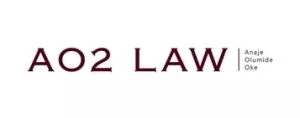Background:
By its circular dated September 13, 20181 the Central Bank of Nigeria (CBN) released the Regulations on Instant (Inter - Bank) Electronic Funds Transfer Services in Nigeria (the Regulations). The Regulations becomes effective from October 2, 2018 and will regulate instant electronic funds transfer (EFT) services and their providers. The Regulations is made pursuant to CBN's powers to promote sound, efficient and effective payment and financial systems in Nigeria' . In this brief, we set out the minimum compliance requirements that the Regulations now imposes on stakeholders, especially EFT service providers (ESP), the responsibilities of the other stakeholders and our thoughts on what the Regulations portends for the relevant aspects of the Nigerian fintech industry.
The Stakeholders:
The Regulations recognises, among others, 5 distinct stakeholders that are relevant to this brief. They are, the:
- EFT Service Provider (ESP): This could be any CBN licensed company that provides the technology for EFT services. The actual funds transfer process is facilitated by or carried out on the ESP's platform. ESPs will typically include a licensed payment system services provider (PSSP).
- Sending Bank/Entity (SB): This is typically the bank from whose repository funds are moved, on the authorisation of the Sender, to the Receiving Bank. The SB debits the Sender.
- Receiving Bank/Entity (RB): This is typically the bank that receives the funds from the Sending Bank for the benefit of the Receiver. The RB credits the Receiver.
- Sender: This customer that sent or authorised the SB to send the funds to the Receiver through the RB.
- Receiver: The customer or beneficiary that received the funds at, from or with the RB (Receiver).
Peremptorily, the Regulation prohibits a SB from allowing a person who has no bank account in Nigeria from making use of or taking benefit of its EFT services.
Minimum Standard for ESPs:
While banks, being the ultimate repository of moveable funds, are at the heart of the financial
and payment system, the facilitation of EFT transactions is driven by inter-bank electronic payment channels owned and or operated by PSSPs. The Regulations expressly sets out the minimum standards of operation for PSSPs in the EFT services space, that is, ESPs.
The minimum standards are as follows:2
- Establish and implement operational rules and guidelines, including user guides, to specify responsibilities of each party in an EFT transaction. It should set out the liabilities of the relevant party(s) in the event of the loss of funds arising from negligence.
- Establish adequate security procedures, which shall include physical, transactions, logical, network and enterprise security, to ensure the safety and security of information.
- Maintain (including its employees) the confidentiality of all EFT transactions.
- Annually submit an enterprise risk management (ERM) framework to CBN.
- Maintain name enquiry support to minimize instances of wrong credits.
- Maintain a business continuity plan which must have received ISO22301 certification3 or any other certification as CBN may prescribe from time to time.
- Establish a robust dispute resolution system (DRS) for users. The DRS must be compliant with CBN's 2016 Guidelines on Operations of Electronic Payment Channels.4 The DRS must be capable of resolving disputes 3 (three) business days, failing which the dispute will be referred to CBN's Director of Consumer Protection within 5 (five) business days of the failure of resolution.
- Maintain a CBN-approved anti-fraud management system or connect with the CBN anti-fraud system, and daily provide the Nigerian Inter-Bank Settlement Systems Plc (NIBSS) with fraud management returns that details all instances of actual and attempted fraud.
- Provide CBN with periodic information on usage, volume and value of transactions and other relevant information as CBN may require.
- Comply with CBN's anti-money laundering/combating financing of terrorism (AML/CFT) directive and transaction value limits as set from time to time by CBN and or other relevant regulatory bodies.
- Comply with all the rules, regulations, guidelines, policies and directives issued from time to time by the CBN.6
The Regulations translated to Business Language:
ESPs will require more systems and processes, internally and externally, to comply with the minimum standards set out in the Regulations. ESPs may even require more. For instance, ESPs are required to establish and implement operational guidelines stating rules and procedure and assigning liabilities to stakeholders. Given the CBN's other well-intentioned mandates, does this requirement delegate CBN's powers to ESPs or is this a case of error on the part of the draftsmen?
Compliance could be cost-guzzling (with smiles reserved for service providers), more so, where rules such as the Regulations require the building of new infrastructure, systems and processes. Unfortunately, the FinTech industry abhors costs that are not tied to research and development seeing the fleeting nature of technology. You either develop or die. In this regard, the importance of patient low cost capital for the increased scalability of FinTech companies cannot be overstated. This however is not CBN's mandate. It has its objects and intentions well written.
FinTech in the Throes of Selective Regulation:
The Regulations further establishes CBN's bid to regulate the payment systems related aspects of the FinTech industry in Nigeria7. This bid is in the absence of express statutory power to regulate the amorphous FinTech industry. CBN's: statutory object (Section 2(d) of the CBN Act, 2007 (the Act)), power to subject persons and institutions under its supervision to guidelines (Section 33(1)(b) of the Act), and obligation to promote and facilitate the development of electronic payment systems (Section 47(2) of the Act); are all insufficient in legislative language to cater for the effective regulation of an industry that is determining the next phase of human commercial relations.
CBN's continuing ability to take responsibility over a space that could be subject to the joint custodial nurturing of other institutions as the National Information Technology Development Agency says so much about its institutionalization. The flip side however begs to question how far can and should the CBN go, seeing such factors as: the undercapitalization of the FinTech industry relative to the financial institutions that are expressly within CBN's statutory oversight; and the nuances of a fast-evolving and dynamic industry relative to CBN's all-important and albeit conservative mandate of ensuring monetary and price stability, issuing the legal tender, maintaining the external reserves, promoting a sound financial system and acting as banker and advisor to the Federal Government of Nigeria. The questions are best asked by policy makers than lawyers.
Some Legal Deconstructions:
CBN will need to do more with some definitions and scope of the Regulations' application. For instance, an EFT Payment is defined as one where delivery from the SB to RB occurs within 60 seconds and goes further to state that any payment system where delivery to the RB occurs after 60 seconds is an ACH system. The definition creates a loophole for a ESP who is unable to meet the minimum requirement to argue the designation of its system, particularly in light of impeding sanctions.
In the absence of any expression to that effect, the Sender or Receiver who is aggrieved by the failure or neglect of a SB or RB may need to be compensated. The applicable fines in the Regulations could be set aside for this. This is arguably global best practice.
The amendment procedure in the Regulations is innovative seeing its reliance on market feedback. Stakeholders are encouraged to take benefit of it in shaping the future of the Regulations.
Final Thoughts:
We commend CBN's continuing interventions in setting standards for EFT transactions and ESPs business processes in Nigeria. CBN strives to fill a role that may not be best suited for it, seeing the very nature and circumstance of ESPs. It is hoped that the market will take benefit of the amendment procedure in the Regulation to engage CBN and the larger eco-political superstructure in what may hopefully change for good, the policy directions for the accelerated development of a suitably regulated FinTech industry in Nigeria. Perhaps, without the CBN at the helms of what appears to be beneath it.
To read this article in full, please click here.
Footnotes
1 See Sections 2 (d), 33(1){b) and 47(2) of the CBN Establishment Act, 2007 currently compiled Cap. C4 Laws of the Federation, 2004 (the Act).
2 Please see Appendix for the Responsibility Matrix of other Stakeholders. 3 ISO 22301 specifies requirements to plan, establish, implement, operate, monitor, review, maintain and continually improve a documented management system to protect against, reduce the likelihood of occurrence, prepare for, respond to, and recover from disruptive incidents when they arise.
4 Available at https://www.cbn.gov.ng/out/2016/bpsd/approved%20guidelines%20on%20operations%20of%20electronic%20payment%20channels%20in%20nigeria.pdf Accessed on September 25, 2018.
5 The applicable CBN AML/CFT directive is the CBN (Anti-money Laundering and Combating the Financing of Terrorism in Banks and Other Financial Institutions in Nigeria) Regulations, 2013. Available at https://www.cbn.gov.ng/out/2014/fprd/aml%20act%202013.pdf Accessed on September 25, 2018.
6 The relevant regulations include Sanctions on Erring
Banks/e-Payment Service Providers for Infractions of Payments
System Rules and Regulations, 2018; Regulation for Bill Payments in
Nigeria, 2018; Prevention of Exposures to Banks through Payments
Solutions, 2016; Establishment of industry Fraud Desks, 2015; etc.
A comprehensive outline of CBN Payments System Circulars may be
found at https://www.cbn.gov.ng/documents/BODcirculars.asp
:
6 Proshare, How CBN is approaching the regulation of Fintech, 2017.
Available at https://www.proshareng.com/webtvchannels/Banking/2294/1
Accessed 24/09/2018;
CBN set to issue guidelines to regulate Fintech, 2018. Available at
https://www.vanguardngr.com/2018/06/cbn-set-issue-guidelines-regulate-fintechs/
Accessed 24/09/2018.
The content of this article is intended to provide a general guide to the subject matter. Specialist advice should be sought about your specific circumstances.



